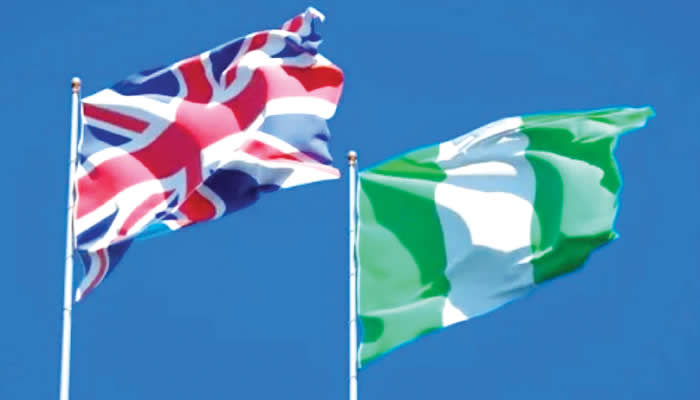In response, Angantýr agreed, saying, “Okay, I’ll do it.” However, Ifedayo raised the stakes by proposing a second phase of the challenge to compare both parties’ economic contributions and benefit usage in the UK.
The Nigerian wrote, “I suggest it be on a Twitter space so everyone can have real time update. We will start by tendering the highest level of university education we both have. Then straight to the test proper.
“After this first phase is done and dusted, I’ll challenge you once again on behalf of every Nigerians to show what you contribute into the country and economy in terms of taxes etc. and what you take from it in terms of benefits and other public funds. I will also do same.”
He added, “If I take from this country more than I contribute, I’ll pack my bags and leave within 24 hours. If my contribution is higher than yours and I what I take back is lower than yours, you’ll keep mute and never drag Nigerians into any of your agenda again! Please, let me know whenever you’re ready as I’m ready anytime you are.”
The Briton however replied by clarifying that he agreed only to the English proficiency tests, adding that he will “happily do an IELTS and we can compare scores. I’ll get back to you.”
READ ALSO:UK Charges Nigerian-British Art Dealer Ochuko Ojiri With Terrorism-related Offence
Further criticising the initial comment made by the Briton, Ifedayo wrote, “If no be condition wey make crayfish bend, How many English una sabi. Despite stereotypes, Nigerians consistently rank among the most proficient English speakers in the United Kingdom. Like I said, these guys just need to be put where they belong. Imagine saying Nigerians can barely speak English.”
In a separate challenge, another user, #agodliveshere, offered a £3,000 prize for a test involving 50 objective questions and two 1000-word essays, which Angantýr also accepted.
#agodliveshere added, “An examiner(s), questions, and method are needed; then location, time, and date should follow. You will need to take some responsibility too. You are the one who needs to prove Nigerians barely speak English. Drop your email address in my inbox, and I will reach out for the planning. I can’t sort out venue, examiners, logistics, time, date and judges all alone. WDYS?
Angantýr however has not responded to the call for the arrangement.
When another Nigerian, Sam Omezia (#SOmezia1) also challenged the Briton to an English language test, Angantýr declined saying, “Sorry man I’m fully booked.”
READ ALSO: British High Commission Clarifies Stance On UK Visa Rules
As the exchange continued, some Nigerians on X.com corrected Angantýr’s grammar, with some pointing out that his phrase “each bring” was grammatically incorrect and should be “each brings.”
Nyakno Abbasi, tweeting as #YNyakno, wrote, “Mr Speaker, Shouldn’t it be “each brings” instead of “each bring” for subject-verb agreement? Just a Nigerian correcting a Brit who barely writes well.”
Some others continued to defend Nigerians’ command of the English language.
Aina Orosun tweeting as #seyfunmi argued that although English is a foreign language which Nigerians are forced to learn in school, many of them can outperform native English speakers in grammar and vocabulary.
“We learnt it forcefully and we will beat you the colonizers silly. When you hear Nigerians, you will run,” he wrote.
READ ALSO: British PM Starmer Sacks Health Minister Over WhatsApp Messages
Damidiya tweeting as #ogunlola23 commented under the Briton’s post saying,” There is no Nigerian here that does not speak good English and has a minimum of BSC, I have both BSC and MSC and I speak English better than you bro. Thank you!”
Akinwunmi, tweeting as #Dieux_oint, also commented, “You will be shocked that we speak and write better English than a lot of “yous”. You are highly misinformed. We speak English, and got educated in English. You have an ageing population and your benefits system already made a lot of people lazy.
Christian, who tweets as #omorogiec, wrote “Nigerians who barely speak English? Nigeria is an English-speaking country, right from Kindergarten up to University. Also, nothing less than 95% of Nigerians in UK care sectors are all degree holders. Immigrants aren’t your problem; quit scapegoating them.”
Yemi, who tweets as #yemitula, also commented, “English is Nigeria’s official language. You might not like our accent, but saying this about Nigerians makes you look ignorant.”
READ ALSO: British PM Starmer Sacks Health Minister Over WhatsApp Messages
The trending debate comes amid intensifying scrutiny of the UK’s immigration policies.
The PUNCH reports that the UK’s Immigration White Paper released on May 12, 2025, introduced a series of sweeping reforms aimed at tightening border controls and reducing immigration.
The new measures outlined restrictions on overseas care worker recruitment, higher skill and salary thresholds, and tougher rules on study, family, and asylum visas.
The major policy changes include the end of overseas social care recruitment, a post-study work visa period shortened from two years to 18 months, and broader English language requirements among others.
